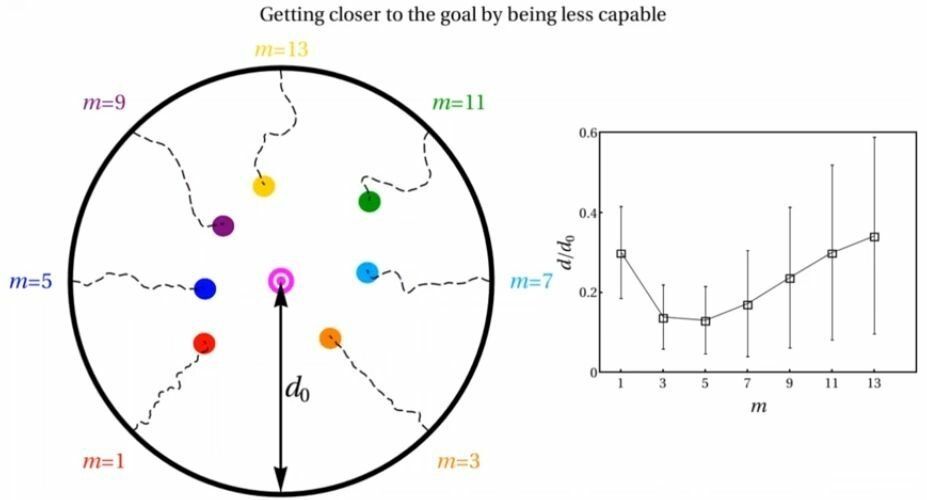These hovering taxis are a cleaner, faster way to travel on water.
Category: transportation – Page 496

Nissan unveils incredible solar-powered mobile workshop for woodworkers
Over the years, we’ve seen thousands of unique van conversions, but Nissan has taken the van-loving world by storm with its new NV300 concept van — a mobile workshop for woodworking professionals. The amazing design, which was a collaboration between Nissan and UK-based firm Studio Hardie, is fully-functioning mobile woodworking studio that can be taken off grid, letting wood-loving artisans find inspiration anywhere they choose. What’s more, the van runs on solar power and its tools are powered by an emissions-free, weatherproof power pack made out of recycled electric car batteries.



‘Air traffic control’ for driverless cars could speed up deployment
Combining human and artificial intelligence in autonomous vehicles could push driverless cars more quickly toward wide-scale adoption, University of Michigan researchers say.
That’s the goal of a new project that relies on a technique called instantaneous crowdsourcing to provide a cost-effective, real-time remote backup for onboard autonomous systems without the need for a human to be physically in the driver’s seat. The research is taking place at the U-M Transportation Research Institute (UMTRI).
The need for human safety drivers in vehicles like Waymo’s recently introduced autonomous taxis undermines their cost advantage compared to traditional ride sharing services, the researchers say. It also keeps the era of cars as autonomous rolling living rooms tantalizingly out of reach. And most researchers agree that machines won’t be able to completely take over driving duties for years or even decades.
SeekerVideosNASA Is Testing Quiet Sonic Booms
This quiet supersonic plane could cross the Atlantic in 3 hours.
DHL adding 63 electric vans to US fleet
Slowly but surely, home delivery is getting cleaner.
Logistics company DHL has already branched out into selling its own StreetScooter zero emission delivery vehicles, but that doesn’t mean it’s not in the market for adding to its fleet from other manufacturers either.
In fact, the company is announcing the addition of 63 NGEN-1000 electric delivery cargo vans, built by equipment manufacturer Workhorse Group. It goes without saying, of course, that 63 vehicles is next to nothing for a company DHL’s size—but it looks like yet another sign that the company is serious about its long-term goal of zero emissions by 2050. More encouragingly, the company has an interim goal of making 70% of first and last mile deliveries and pick ups using “clean transport modes” by 2025. (Truthfully, I was a little suspicious of a vague term like ‘clean transport modes’, but the Mission 2050 website suggests these are electric vehicles or bikes.)

Decentralized systems are more efficient at reaching a target when its components are not overly capable
A team of researchers including Neil Johnson, a professor of physics at the George Washington University, has discovered that decentralized systems work better when the individual parts are less capable.
Dr. Johnson was interested in understanding how systems with many moving parts can reach a desired target or goal without centralized control. This explores a common theory that decentralized systems, those without a central brain, would be more resilient against damage or errors.
This research has the potential to inform everything from how to effectively structure a company, build a better autonomous vehicle, optimize next-generation artificial intelligence algorithms—and could even transform our understanding of evolution. The key lies in understanding how the “sweet spot” between decentralized and centralized systems varies with how clever the pieces are, Dr. Johnson said.

Boeing unveils rendering of hypersonic jet that would fly from US to Japan in 3 hours
Boeing unveiled a rendering of its first-ever design for a hypersonic passenger plane at an aerospace conference in Atlanta. While the idea and potential of the plane will generate plenty of buzz, this is a concept that is likely decades from being built.
The hypersonic passenger plane could, in theory, fly as fast as Mach 5, or just under 3,900 miles per hour. That would allow the plane to carry passengers between Los Angeles and Tokyo in roughly three hours. A flight from New York to London could be as quick as two hours. Right now, those flights take about 11 hours and 7 hours, respectively.
Boeing CEO Dennis Muilenburg is pushing the aerospace giant to explore the potential of ultra-fast passenger planes.
